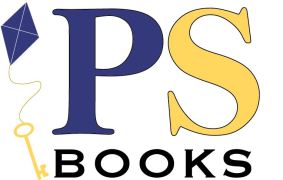 Emily Cole is this year’s winner of the Sandy Crimmins National Prize in Poetry. She was kind enough to sit down with us and answer a few questions about her process, plans, and love of poetry and music.
Emily Cole is this year’s winner of the Sandy Crimmins National Prize in Poetry. She was kind enough to sit down with us and answer a few questions about her process, plans, and love of poetry and music.
Congratulations on winning the Sandy Crimmins National Prize in Poetry for your poem, Self-Portrait as Rapunzel. Can you tell me about what inspired you to write this poem?
Thank you! “Self-Portrait as Rapunzel” is, in many ways, a family poem, so it’s mostly inspired by my relationship with my mother, and, of course, from the fairytale itself. However, one of the poem’s most direct influences is the book The Unexplained Fevers, by the wonderful Jeannine Hall Gailey. The book features a lot of Rapunzel poems and I was reading it just before I drafted my own Rapunzel poem. My poem is not a direct response to any of Gailey’s, but there’s definitely a visible influence.
I thoroughly enjoyed the language of Self Portrait as Rapunzel. I found it playful, yet challenging, and enjoyably metaphorical, but without sacrifice to narrative. When you write, do you tend to focus on any one particular aspect over another? Whether it is tempo, sound, story, structure, etc.?
Absolutely. Before I was a poet, I was (and am still) a musician, so the music of language is always the first thing I focus on when I’m writing. One of my favorite things about poetry is the way poets pay such careful attention to sound in their language. Sound is always one of my first considerations. Narrative though – that’s harder for me. Much of my work has to go through a lot of drafts before I can tease out a consistent narrative. Fortunately, Rapunzel lent itself very well to narrative, since the poem is partially modeled on the fairytale.
When did you first discover your passion for poetry?
This is a hard question to answer! I’ve loved reading poetry since I was a small child and I’ve been writing it for as long as I can remember. I was always writing poetry during free writing time in elementary school, and all my study halls in high school were more devoted to sonnets than to textbooks. I didn’t really become serious about writing poetry until my last year of college though, and now that I’m in an MFA program, I can’t imagine doing anything else.
If you could control the affect that your work has in the reader, what affect would that be?
I’m a firm believer in the power of art – any kind of art – and its ability to inspire empathy in its readers (or viewers, or listeners). I think that poetry, given its compressed nature and attention to beautiful language, is perfect for showing us reflections of ourselves and helping us empathize with one another. So that’s what I’m going for when I write: I want to inspire empathy, or, at least, powerful emotion. Ideally, that emotion will lead readers to produce some art of their own.
As both a poet and a songwriter, how do your approaches differ in respect to each medium?
I adore both mediums, and they definitely inform one another – my musical knowledge helps me with sound and rhythm and narrative tension in my poems, and my background in rhyme and meter are invaluable in my songwriting. However, I think of these two mediums as very distinct from one another. I like to think of poetry as something closer to a two-dimensional medium and music as more three-dimensional.
In poetry, I’m concerned with sound and line breaks and the way it looks on the page, but all I have to worry about is words. In songwriting, though, I have to think about lyrics, melody, layering and arranging the other instruments… It’s a very different thought process. I think that, in general, lyrics are easier for me to write because I usually build them around a backbone of melody and I don’t have to worry so much about the individual sound structure, since the music and phrasing is generally more important. That’s the wonderful thing about songwriting – poetry is pretty static unless you change the words, but music can be rephrased and reshaped; it’s different every time.
What are your plans after completing your MFA at the University of Southern Illinois?
My long-term goal is to become a creative writing teacher. This year, I have the privilege of teaching one section of Introduction to Creative Writing and I absolutely love it. First though, I need to work on my poetry thesis. I’ll be entering the final year of my MFA next fall, which means I’ll need to produce a book-length thesis. I haven’t quite decided on the exact shape of the book yet, but it’s likely that “Self-Portrait as Rapunzel” will be included!

